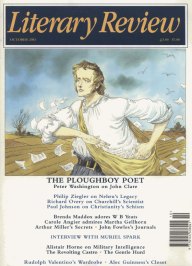Justin Marozzi
The Great Dictator
The Real Fidel Castro
By Leycester Colman
Yale University Press 352pp £25
WHEN A DICTATOR has served a certain time in office, it becomes fashionable to ignore the less attractive aspects of his rule (arbitrary arrests, beatings, torture, crushing of all opposition - the usual roll-call of revolutionary exuberance) and regard him with a more benevolent eye. After thirty-four years spent frightening the life out of ordinary Libyans - flirting with international terrorism here, blowing up aeroplanes and discos there - Colonel Gaddafi appears to have reached that agreeable stage of life. Several billion well-placed dollars, the price of killing hundreds of innocent civilians on two airliners, have helped ease him back into the community of nations. 'You know, that Gaddafi's a bit of a character, isn't he?' goes the cry. 'Look how many American presidents he's seen off, and he's still in power. You have to admire him.' Well, no, you don't actually. The man is a dangerous criminal. Like his dictatorial brethren around the world, he has waged war on his own people.
Fidel Castro achieved cuddly-dictator status much earlier than Gaddafi. One reason for this is his greater number of years at the helm. The grand-daddy of Marxist revolutionaries, he seized power in Cuba in' 1959, a fill decade before the Libyan leader ousted King Idris. Another, more important explanation is that

Sign Up to our newsletter
Receive free articles, highlights from the archive, news, details of prizes, and much more.@Lit_Review
Follow Literary Review on Twitter
Twitter Feed
It wasn’t until 1825 that Pepys’s diary became available for the first time. How it was eventually decrypted and published is a story of subterfuge and duplicity.
Kate Loveman tells the tale.
Kate Loveman - Publishing Pepys
Kate Loveman: Publishing Pepys
literaryreview.co.uk
Arthur Christopher Benson was a pillar of the Edwardian establishment. He was supremely well connected. As his newly published diaries reveal, he was also riotously indiscreet.
Piers Brendon compares Benson’s journals to others from the 20th century.
Piers Brendon - Land of Dopes & Tories
Piers Brendon: Land of Dopes & Tories - The Benson Diaries: Selections from the Diary of Arthur Christopher Benson by Eamon Duffy & Ronald Hyam (edd)
literaryreview.co.uk
Of the siblings Gwen and Augustus John, it is Augustus who has commanded most attention from collectors and connoisseurs.
Was he really the finer artist, asks Tanya Harrod, or is it time Gwen emerged from her brother’s shadow?
Tanya Harrod - Cut from the Same Canvas
Tanya Harrod: Cut from the Same Canvas - Artists, Siblings, Visionaries: The Lives and Loves of Gwen and Augustus John by Judith Mackrell
literaryreview.co.uk